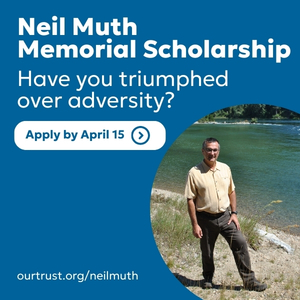 Summer-camp experiences for many urban kids are a touchstone for Nature itself, when most of their lives are spent in a concrete jungle. This is an American tradition as well — as it is in many other Western countries, such as in Europe. It is an age when most youngsters are growing up accustomed to the ways of global Netizens, experts on mobile devices and reliant on data connections. The question is, how will our nation's camping traditions withstand young campers who, being stripped of their computers, may have unique experiences of adjustment to wild, unplugged Nature?
Summer-camp experiences for many urban kids are a touchstone for Nature itself, when most of their lives are spent in a concrete jungle. This is an American tradition as well — as it is in many other Western countries, such as in Europe. It is an age when most youngsters are growing up accustomed to the ways of global Netizens, experts on mobile devices and reliant on data connections. The question is, how will our nation's camping traditions withstand young campers who, being stripped of their computers, may have unique experiences of adjustment to wild, unplugged Nature?
False Assumptions
The first assumption that adults may have about modern cyber-kids' going camping may be that they will be stripped of their gadgets. In truth, battery life, device efficiency and extra power bank chargers could keep kids wired while out in Nature, unless they are encouraged to abstain or electronics are not allowed. Then again, cameras can't be banned, and most cameras are bundled inside smartphones.
While a wireless mobile network and data connections to the Web may not be available in the wilderness of North Carolina or any larger state, or in National Parks, smartphones, tablets and portable gaming devices can do a lot in offline mode.
Actually, the biggest assumption that supervisors and camp staff may be making is that kids using mobile computers is bad — because many kids may well come prepared to camp with resources that will help them during the experience, which were downloaded or installed beforehand.
Nothing Wrong with Playing Games
Leading educational research, shared at conferences such as at Stanford University, are pointing to newer working theories about computers and even gaming when they are used in learning contexts. Kids who use their smartphones to take images and refer to content they brought along may be becoming their own teachers — and, learning how to learn is the greatest lesson.
The truth is, just as boundaries between work and leisure are breaking down for many professionals during this time of technological wonders, the separations between learning and playing are blurring, too. And, fortunately, a playful mindset turns out to be very conducive or helpful to learning.
The current situation may not even be as different from the past in essence. Whereas prior generations of young campers packed guidebooks, bird spotting references, Boy Scout materials, and so forth — today's outdoor adventurers do the same, but they just have electronic equipment along with their gear (and perhaps no books to schlepp around).
A Virtual Kitchen Sink
A kid is somewhat likely to have a smartphone that can act like a Swiss Army Knife of information and ideas, even images, videos, e-books — today's online content is practically unlimited. And what is online often can be an offline resource also. Incidentally, off-network mode extends the battery life of these devices dramatically — making them available for more of a camping trip, maybe even all of it.
Children and teenagers are not alone in playing online or console games, although they form the stereotype for "gamers". The Web itself, because gaming is such a common experience, is starting to adopt playful tactics in many corners — even serious applications like online banking, or advanced shopping apps, employ game-like sequences to make things run smoother. And of course, little games and contests are offered to customers routinely, precisely because people love to play and they are receptive at those times.
Actually, if parents don't go on the hiking trip that is part of a youth camping program, for example, they may be playing their own online games with spare time to do grown-up stuff. Interestingly, some of the same principles that show up in the most sophistocated casino games (such as those found on popular guide pages like http://www.classycasinos.co.uk/slots) are also used in e-learning software or corporate training media.
Camping may be becoming smart-camping in our day and age, but in truth it is the same as it always has been — mind-blowing experiences of witnessing the natural world and being part of natural forces. The only thing that may be changing is how we camp and capture the moments of our expansion and deep learning in Nature.
























